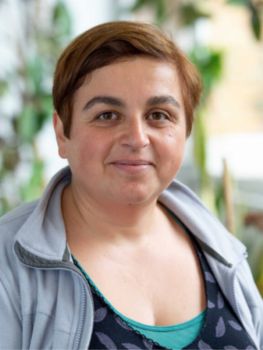News
Sussex scientist receives prestigious grant to investigate protection against cancer development
By: Carlos Miret Fernandez
Last updated: Monday, 17 April 2023

Professor Evi Soutoglou
Evi Soutoglou, Professor of Genome Stability at the School of Life Sciences, has received an Advanced Grant awarded by the European Research Council (ERC) to study how DNA is repaired when it breaks. When our cells are damaged, for example when muscles contract from activity, our DNA is damaged too. Luckily, this is usually very quickly repaired, but in some instances this doesn’t happen, particularly for those with cancer. The funding for this project will help University of Sussex researchers to understand how the arrangement of the DNA protects it from breaking or making its repair more robust. Understanding how DNA repairs when it breaks will help to understand how to protect cells and people from cancer development.
The grant received by Professor Soutoglou is one of 218 grants awarded to outstanding research leaders across Europe, as part of the Horizon Europe programme. The grants - totalling €544 million - support cutting-edge research in a wide range of fields, from medicine and physics to social sciences and humanities.
The ERC Advanced Grant funding is amongst the most prestigious and competitive EU funding schemes, providing researchers with the opportunity to pursue ambitious, curiosity-driven projects that could lead to major scientific breakthroughs. They are awarded to established, leading researchers with a proven track-record of significant research achievements over the past decade.
Professor Soutoglou says: "I am grateful to the European Research Council for the continuous trust and support. It is one of the greatest honors in Europe and I have not yet digested the news! I hope the UK will continue to be part of this scheme and fully associate with Horizon Europe because it can only be beneficial for scientists. With the ERC advanced grant, my lab will decipher how the spatial arrangement of the genome inside the cell protects it from alterations which can be detrimental for life and can lead to cancer. I would like to thank the Genome Damage and Stability Centre and Life Sciences at the University of Sussex for their support."